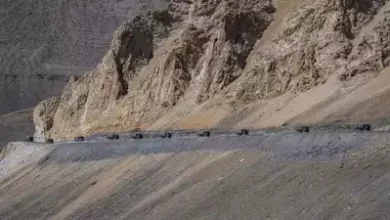ICPF data indicates that more than 2. 4 lakh POCSO cases are pending in Fast Track Special Courts
NEW DELHI: According to a recent study, despite the Central Government’s strong policy and budgetary commitment, 2,43,237 POCSO cases in India are still outstanding in its Fast Track Special Courts (FTSCs) as of January 31, 2023.

It believes the nation will require at least nine years to clear this backlog, even in the unlikely event that no new cases are added to this lengthy list. In many states, like Arunachal Pradesh and Bihar, it can take over 25 years to resolve the outstanding cases.
According to “Justice Awaits: An Analysis of the Efficacy of Justice Delivery Mechanisms in Cases of Child Sexual Abuse in India,” a research report published by the India Child Protection Fund (ICPF), the percentage of cases that ended in conviction in 2022 remained a meager 3 percent nationwide.
The paper’s conclusions raise serious concerns about the effectiveness of the nation’s legal system, even in light of the Central Government’s historic decision in 2019 to establish Fast Track Special Courts to provide justice to victims of child sexual abuse and the government’s annual expenditure of crores to guarantee justice for all children.
The report further claims that, under the current circumstances, it would take Arunachal Pradesh thirty years to finish the trials of cases that are pending under the POCSO as of January 2023, whilst it would take Delhi twenty-seven years, West Bengal twenty-five, Meghalaya twenty-one, Bihar twenty-six, and Uttar Pradesh twenty-two years to clear the backlog.
The main goal of Fast Track Special Courts (FTSCs), which are specialized courts, is to expedite the trial process in sexual offense cases, especially those that fall within the purview of the Protection of Children from Sexual Offenses (POCSO) Act. FTSCs were established in 2019 and were recently given permission by the Central Government to continue as a Centrally Sponsored Scheme (CSS) 2026 with a budgeted allocation of more than Rs 1900 crore.
Only 8,909 of the 2,68,038 cases that were on trial resulted in a conviction, despite the scheme’s intended delivery of the legislative obligation for the trial of such cases to be completed within a year.
According to the report, each FTSC in the nation hears 28 cases annually on average, meaning that a single conviction costs around Rs 9 lakh. “It was anticipated that each FTSC would resolve 41–42 cases in a quarter and at least 165 cases annually.
According to the statistics, even three years after the scheme’s inception, FTSCs are still not able to meet the goals set out,” the research said.
The article went on to say, citing the ruling of the Supreme Court, that child marriage is tantamount to child rape and that, according to the 2011 Census, 4,442 minor girls were married off every day—that is, three children were forced into child marriage every minute.
But according to the most recent statistics from the National Crime Records Bureau, there are just three child weddings registered each day.







